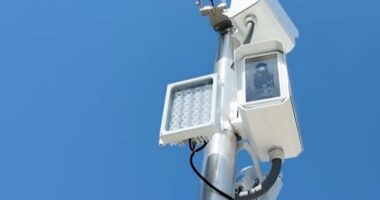
3News’ Lynna Lai will be joining lawmakers in Columbus for the bill signing on Thursday afternoon.
On Thursday, Ohio Governor Mike DeWine is scheduled to sign a bill that will prohibit the unwanted electronic tracking, a significant achievement for those supporting the cause of domestic violence prevention. This milestone comes after a persistent campaign led by 3News Investigates.
The new law will prohibit electronic tracking with an installed app or devices like Apple Airtags without a person’s consent.
3News’ Lynna Lai will be present at the bill signing event in Columbus alongside legislators and advocates. The live coverage of the signing will be available through 3News’ media player on our website and also on our YouTube channel.
This bill is a result of a thorough investigation conducted by 3News over two years, which highlighted how easily offenders could track their victims using affordable devices like Apple AirTags. Additionally, it exposed the vulnerabilities in Ohio’s existing stalking laws that enabled stalkers to monitor their targets without fear of repercussions.
The bill represents a significant victory for victim safety, addressing a critical gap in existing stalking laws. Sen. Nathan Manning (R-North Ridgeville) highlighted the importance of the legislation, crediting 3News Investigates’ Lynna Lai for bringing the issue to light. “We didn’t realize that this wasn’t illegal. It was a loophole, so certainly we appreciate her and all the advocates,” Manning said.
The two-year effort by 3News Investigates first exposed the vulnerability in Ohio’s legal system in 2022, through the case of an Akron woman whose ex-boyfriend secretly tracked her movements by placing an AirTag under her car bumper. At the time, prosecutors struggled to pursue charges because existing laws required a “pattern of behavior,” meaning a stalker could use a tracking device just once without serious legal consequences.
Bipartisan support was crucial to the bill’s success. Democratic Minority Leader Nickie Antonio from Lakewood and Manning worked together to craft legislation that addresses the technological threat of digital tracking.
The new law includes important exceptions for legitimate tracking scenarios, such as law enforcement investigations, parents monitoring minors, and caregivers responsible for elderly individuals. This approach is intended to ensure that the legislation protects individual privacy while maintaining necessary safeguards for vulnerable populations.
Digital tracking technology has become increasingly sophisticated and affordable, making unauthorized surveillance easier than ever. Devices like Apple AirTags, which are small and relatively inexpensive, can be easily hidden to monitor someone’s location without their knowledge. The 3News Investigates reports revealed how these technologies could be weaponized by stalkers, creating an urgent need for legal protection.
The bill includes several important exceptions to allow tracking in specific scenarios, such as:
- Law enforcement investigations
- Parents tracking minor children (with detailed consent provisions)
- Caregivers of elderly or disabled adults (with medical certification)
- Business entities for legitimate purposes
- Vehicle owners tracking their own vehicles
- Private investigators under specific legal constraints

















